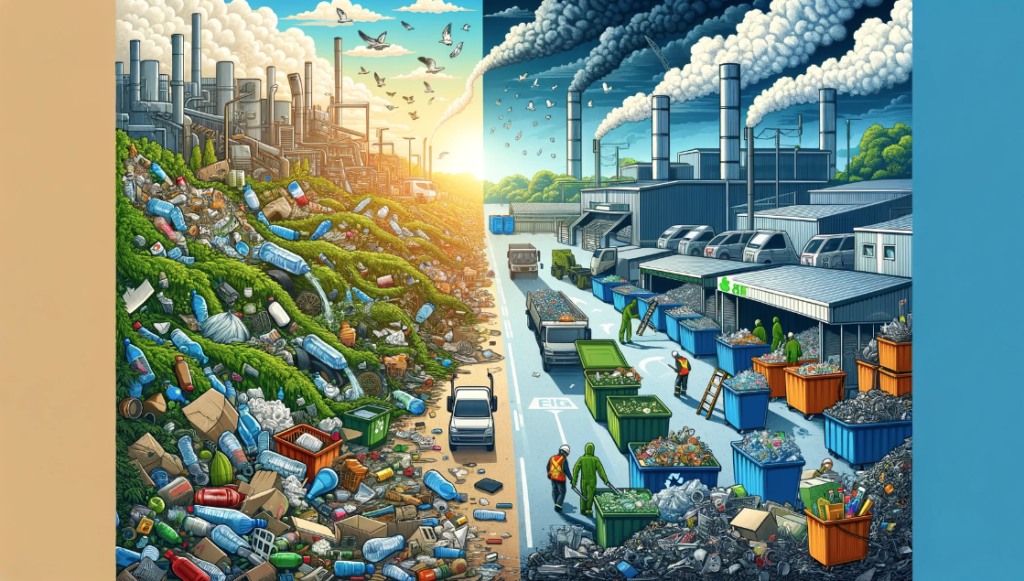Lesson 28.
Waste Management and Recycling (廃棄物管理とリサイクル)

▮ Explanatory Text:
Effective waste management and recycling are critical for environmental sustainability, reducing the impact on landfills, conserving natural resources, and minimizing pollution. This topic explores the processes, benefits, and challenges of managing waste, from household recycling programs to industrial waste treatment. It covers the importance of reducing waste generation, reusing materials, recycling, and recovering energy from waste. The discussion also delves into innovative waste management solutions, public policies for waste reduction, and the role of individuals and communities in promoting recycling and sustainability.
▮ Common Phrases:
1. Reduce, reuse, recycle (3Rs) emphasizes…
2. Composting organic waste contributes to…
3. Single-use plastics pose a challenge to…
4. Circular economy models promote…
5. Community engagement in recycling initiatives is vital for…
▮ Example Sentences:
1. Reduce, reuse, recycle (3Rs) emphasizes the importance of minimizing waste generation and maximizing resource efficiency.
2. Composting organic waste contributes to soil health and reduces methane emissions from landfills.
3. Single-use plastics pose a challenge to waste management systems due to their environmental persistence.
4. Circular economy models promote the design of products for durability, reuse, and recyclability.
5. Community engagement in recycling initiatives is vital for increasing recycling rates and fostering sustainable behaviors.
▮ Questions:
1. What are the key components of effective waste management and recycling programs?
This question encourages learners to discuss the elements necessary for successful waste management, including collection, sorting, and processing practices.
2. How do single-use plastics impact the environment, and what are the alternatives?
Participants explore the environmental consequences of single-use plastics and discuss sustainable alternatives.
3. What role does technology play in improving waste management and recycling processes?
This prompts a discussion on innovative technologies that enhance waste sorting, recycling efficiency, and the conversion of waste to energy.
4. & 5. How can individuals and households contribute to waste reduction and recycling efforts?
Learners examine practical actions that individuals can take to minimize waste and support recycling at the local level.
Discuss the concept of a circular economy and its implications for waste management and environmental sustainability.
This question invites speculation on the shift from a linear to a circular economic model, focusing on the reuse and recycling of materials to create a more sustainable future.
▮ Discussion Instructions:
Choose a waste management or recycling challenge that you find particularly compelling or problematic. Discuss its impacts, the current approaches to addressing the issue, and potential improvements or solutions. Reflect on how changes in consumer behavior, policy, and technology could contribute to more effective waste management and recycling.







